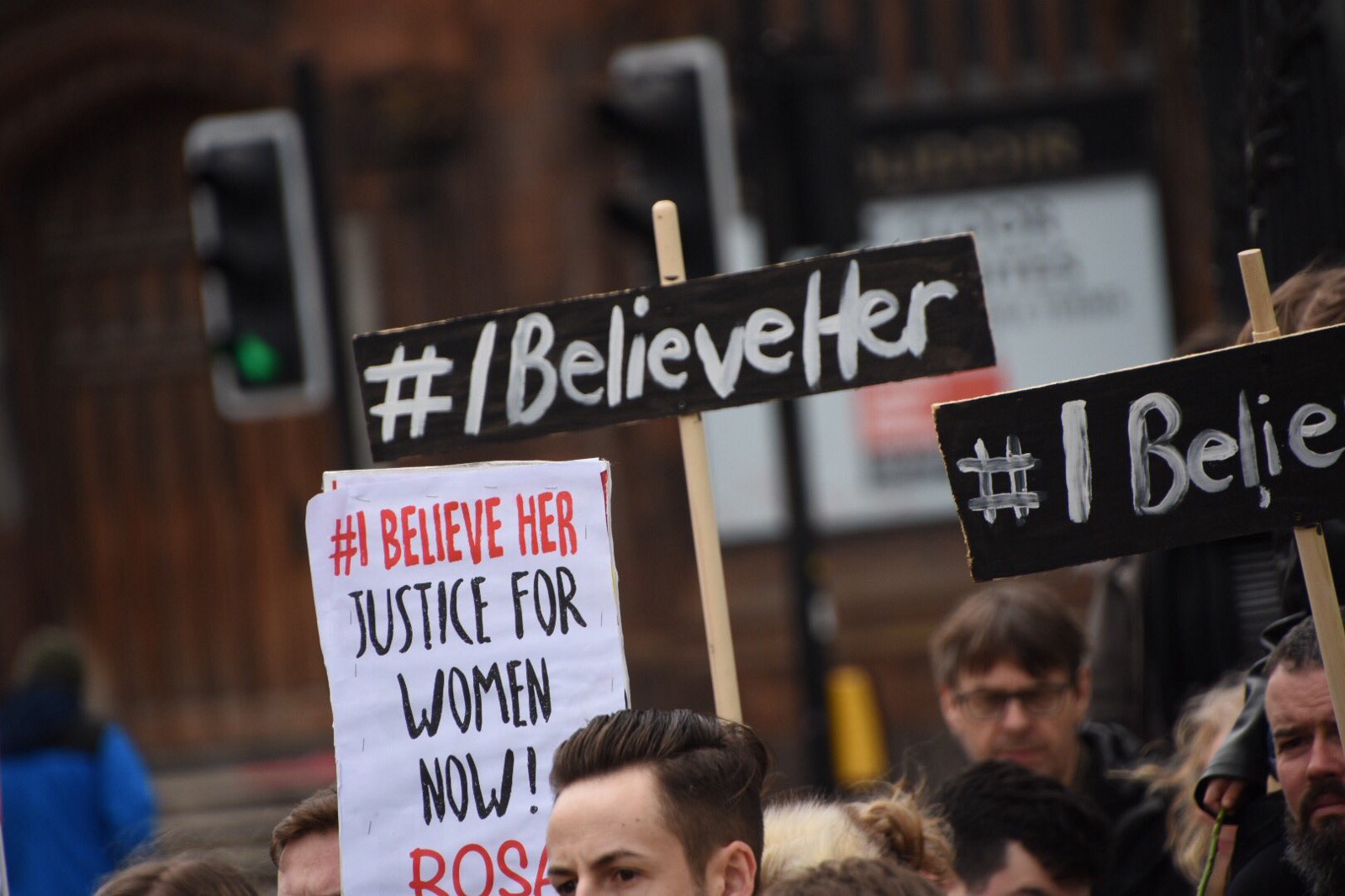The I Believe Her Movement, which has been been around for years but has only recently begun gaining popularity as a response to #MeToo, was started as a way to show support for survivors of sexual assault — especially rape victims following the disappointing outcome of a trial in Ireland. Increasingly, American women (and men) have begun using #IBelieveHer to show their support for women who claim to have been the victims of sexual violence. Within the last two weeks, especially, the movement has skyrocketed in attention because of Dr. Christine Blasey Ford’s accusations against Brett Kavanaugh of sexual assault.
Dr. Ford gave a powerful and emotional testimony to the Senate, fighting back tears, of her recollection of when she was sexually assaulted at 15 years old. She remembers the room it happened in, the hand gripped over her mouth, the laughter and the way his voice still haunts her this day. She can vividly recount details of the assault that has convinced so many to believe her story.
Now that Kavanaugh has been confirmed, the Supreme Court has tipped in favor of a Republican majority. The decision also marks a critical moment in today’s political climate — one crucial in the continuing fight against the stigma surrounding sexual assault.
Often people who experience and report sexual violence are told the assault was their fault, which then discourages them from reporting future incidents. The stronger this system of repression appears, the less likely women will be to report any sexual crime they experience.
One of the best ways to fight back, however, is to speak up. All it takes is one voice to encourage more to follow. Women across Ireland and the United States, most notably in New York, have formed protests crying out, “I believe her.”
While the movement is happening to show support for victims of sexual assault, it is also calling out the broken system that blames victims of sexual assault for the assault. Far too often victims are told it is their fault the assault happened, that their clothes caused it, they were asking for it or that they never said “no.” The movement is reflective of a society that blames the victim, rather than the oppressor and assault. Movements like this are not just social media frenzies, or liberals acting out; they help survivors heal, they help open up activism and they help point out problems within society.
Dr. Ford is neither the first, nor likely the last woman who to speak out against sexual assault. She’s not the first to wait years to say anything, either. In politics of late, scandals have been increasingly swept aside. Twenty-two women have accused President Trump of sexual misconduct, but he has dismissed the allegations and will likely escape unscathed. Still, the survivors are now able to use the #MeToo and #IBelieveHer movements to keep their voices alive.
Lucy Hale, Tiffany Haddish, Anna Faris, Abigail Breslin, Jane Fonda, Gabrielle Union, Corey Feldman and Lady Gaga are just a few of the celebrities that have spoken up about their personal experiences with sexual assault. Of course, this list doesn’t include the women and men on college campuses, at work or walking down the street who are assaulted.
If you are not someone who has been personally affected, that does not mean your voice is unimportant. Being an ally, a shoulder to cry on, an open ear or just there for someone can help survivors deal with the trauma. #IBelieveHer is not just for survivors of sexual assault, but it is also for family, friends and allies.
I Believe Her is making sure that people like Trump, Kavanaugh, Harvey Weinstein and so many more are being put on trial because no one gets a free pass anymore. The I Believe Her movement has sparked a conversation surrounding sexual assault and rape culture, and women are no longer going to keep quiet about it. They are angry, they have had a whisper of their voices heard and they are only going to get louder from here.
To join the “I Believe Her” conversations, use any variation of the hashtag on social media to let your voice be heard. For more information, visit their site at: https://www.ibelieveyou.info
















